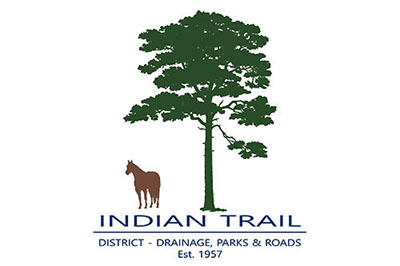The Indian Trail Improvement District Board of Supervisors approved a $16,488,896 budget Tuesday, Sept. 6 for the new fiscal year that begins Oct. 1.
That number represents a $4 million increase over the district’s 2022 budget, and an average per acre assessment increase of approximately $180, not counting other assessments, including the R3 road improvement project assessment.
While still representing a sizable increase over the 2022 budget, it is large decrease from the $24.3 million “wish list” budget presented by ITID staff earlier this summer. A second effort by staff members cut the proposal to $19.8 million. They were told by supervisors in July to find more items to cut.
This year’s budget process, “is difficult for the board. It’s difficult for the community,” ITID Vice President Betty Argue told numerous residents who gathered for the session, many of whom rose to address the supervisors during the public comment portion of the hearing. “I know it has been hard on our staff.”
One resident told the board that while he works hard and “pinches pennies,” coupled with inflation, the district’s assessment increase may force him and his family out of their home.
Board members are faced with the same rising costs in their own homes, Argue said, but they have responsibility to continue efforts to fix roads and drainage systems that she said were “ignored” for decades.
“We have a choice,” she said. “We can cut all sorts of things out of the budget, but that means services also will have to be reduced… I already hear it from residents that we’re not doing enough.”
Included in the 2023 budget plan is $8,380,298 for operations, $3,257,185 for administration, $2,975,699 for stormwater and drainage, and $1,850,714 for parks and recreation.
However, even though money may be budgeted for certain areas, such as the purchase of heavy equipment and light trucks, that does not automatically mean it will be spent, Argue said.
“It’s not going to get easier [on staff] this year, because we’re going to have to take out a magnifying glass and look at every single option.”
Supervisor Joni Martin made a motion to approve the budget, seconded by Supervisor Jennifer Hager.
In other business, the supervisors instructed staff to move forward with efforts to obtain $3 million in financing for road and drainage improvements to the Santa Rosa Groves neighborhood, also known as ITID Unit 20. The loan would be for 10 years at 4.53 percent interest, with a total payback of $3,881,000.
The average per acre annual assessment would be $827. That means a property owner with five acres would pay $4,138 in unit-specific assessments.
The money will go to installing pumps; clearing canals; building or milling roads, particularly Carol Street; installing signage; and perhaps adding some type of traffic calming. The changes will allow curbside garbage pickup, mail and package delivery, and prevent flooding during heavy rain events.
During public comments, veteran real estate agent Charles Johnson called Santa Rosa Groves “a jewel” surrounded by large-scale development. He told the audience that the assessment is “the price of admission” for continued development of the area that will improve property values.
“I think everyone is happy that we’re going to have drainage and services,” Carol Street resident Elizabeth Accomando said. “It’s nice to be standing here at this point of this challenging project.”








